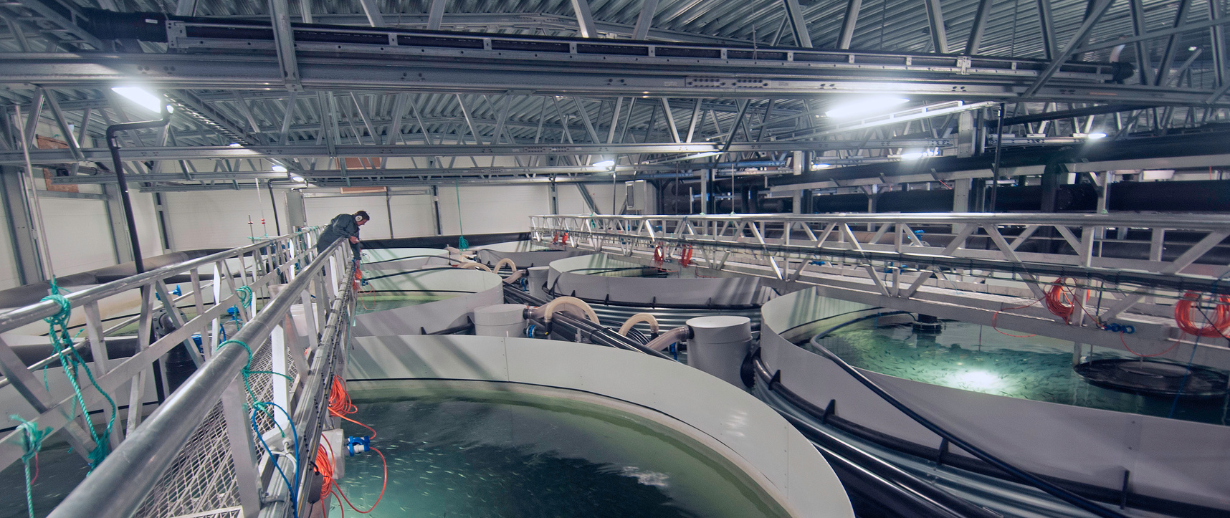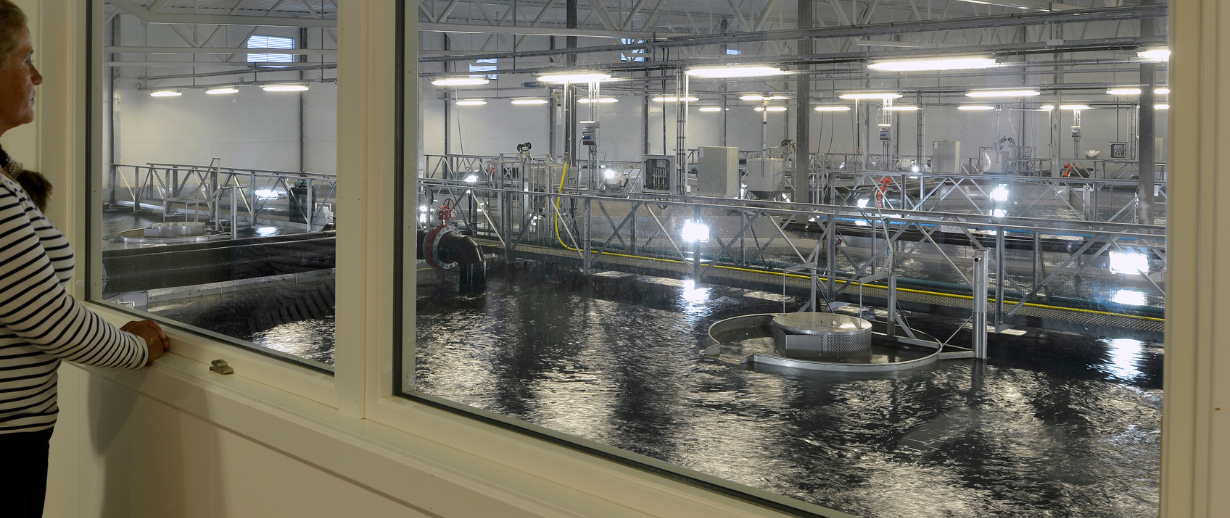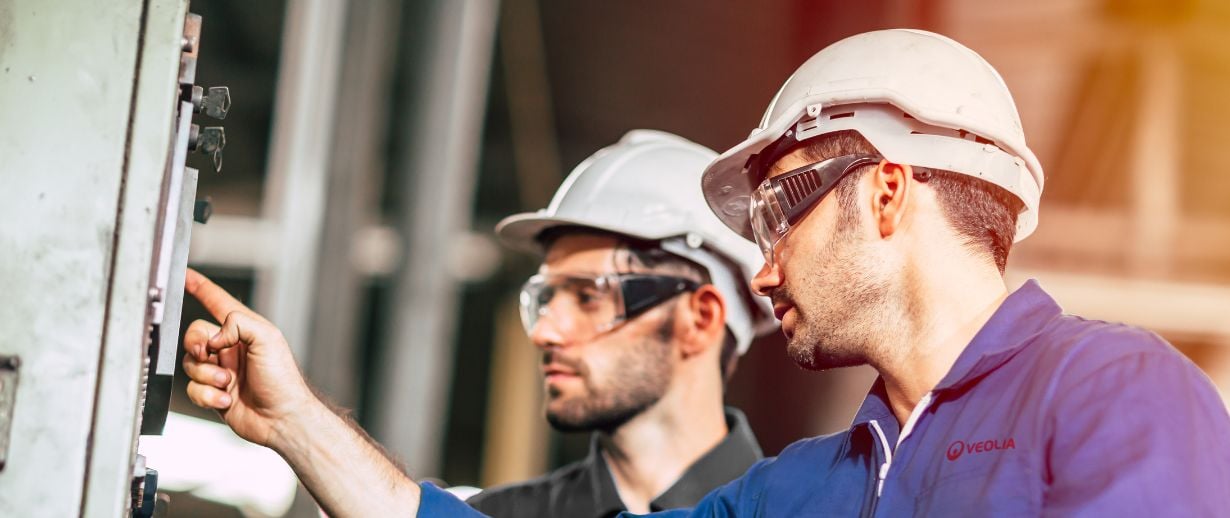At Veolia Water Technologies, we have spent more than 20 years developing water treatment systems for the land-based aquaculture sector. Here, Derek Mcintyre, our Business Development Director, talks through the treatment steps required and the solutions we can offer this rapidly growing industry.
As of 2020, there were 464 fish farming sites in the UK - farming 217,000 tonnes of fish - making aquaculture one of the fastest-growing food supply sectors in the world. Water is a crucial component of the fish farming process, enabling the fish to live healthily whilst ensuring a quality product is produced. The wastewater created by fish farms also needs to be treated so that it does not pollute the environment.
Veolia Water Technologies’ water and wastewater systems deliver operation-friendly, high-quality and sustainable water treatment systems, to help aquaculture facilities combat ongoing challenges including water consumption and pollution.
Process Water

Many aquaculture facilities utilise river or seawater as the source of their process water. However, as the process water is the environment in which the fish live within the facility, the quality of the process water is a critical aspect of the aquaculture system, impacting fish health and the harvested product output. The quality of the process water required will depend heavily on the product being farmed, with differing species and developmental stages having a different set of optimal water quality requirements. These requirements take into account variables such as temperature, pH, alkalinity, hardness, dissolved oxygen, ammonia and nitrate levels in the source water.

At Veolia, we have a wide range of technologies that can consistently facilitate the required process water quality, regardless of water source, system capacity or whether the water is required for large robust salmon or more delicate fish larvae. The water treatment may be simple filtration (we can provide high-flow filters that can filter to 10 microns - if required). In some cases, the recommended system will include a UV sterilisation step and an ultrafiltration step to remove any pathogens and organisms found in the feedwater to meet the desired quality requirements. Reverse Osmosis systems remove dissolved ions in water and in some Aquaculture applications, this can be beneficial to the health of the fish.
Wastewater
We can also provide solutions designed to treat the wastewater from aquaculture systems. This wastewater is often contaminated with uneaten food and fish faeces, and regulations are in place to prevent its immediate discharge into the sea or other watercourses. While discharge requirements can vary from site to site depending on the local authority, our aquaculture wastewater treatment solutions tend to fall into two categories – a biological water treatment stage or a filtration stage, sometimes a combination of the two.
Our Moving Bed Biofilm Reactor (MBBR) solution by Veolia AnoxKaldnes® is a biological process that utilises biofilm grown on plastic carriers that are suspended in the wastewater and kept constantly in motion using aeration, allowing the bacteria on the carriers to break down soluble organic matter in the water. The use of this technology negates the need for sludge recirculation, leaving only surplus biomass to be removed using a downstream separation technology perhaps combined with a chemical dosing and flocculation stage.
.png?width=1230&height=518&name=MBBR%20blog%20(1).png)
For the separation of surplus biomass, a filtration system such as Hydrotech Value Drumfilter (HVDF) could be used to separate the biomass from the water. This filtration system is a mechanical self-cleaning filter specifically designed to prevent particles from fragmenting. It provides an easy way to handle solids and deliver high filtration efficiency, utilising gravity alone to push water through the system. The absence of pressure also ensures a long system life and low maintenance costs.
Following the filtration process, additional treatment steps can be put in place to enable the wastewater to be recirculated back into the system and reused as process water. Alternatively, it can be safely discharged into the sea or water course.
Sludge
-Feb-29-2024-03-00-58-1870-PM.png?width=1230&height=518&name=Blog%20Headers%20(1)-Feb-29-2024-03-00-58-1870-PM.png)
Finally, we can help facilities deal with the sludge filtered from the wastewater to minimise and mitigate any impact on the local environment. One way sludge can be used is as a feedstock for an anaerobic digester, which breaks the bacteria down and turns it into biogas. This can then be used as an alternative to natural gas or, if enough biogas is created, it can be sold back to the gas grid, ensuring that the waste is put to good use. Alternatively, the sludge can be dried out to create fertiliser and sold on.
Service support

Finally, we can also offer customers our AquaService™, which incorporates a variety of service options depending on your needs. Selecting Aquaservice™ provides added value and assurance that our team is on hand to help keep your water treatment system operating at maximum efficiency and to ensure the water continuously meets specification requirements.
Should there ever be a breakdown our engineers can be on site quickly to provide the correct parts and resolve issues, minimising system downtime and improving performance. AquaService™ benefits can also include the refurbishment of existing water treatment plants to extend the life of systems and the installation of Hubgrade™, our cloud-based digital monitoring system, which allows water to be evaluated and optimised using real-time data. This means any issues can be diagnosed and fixed quickly.
With an unparalleled range of water treatment technology and solutions, as well as specialist expertise, we can tailor the options to meet specific industry standards and support clients through concept design and after-sales support to ensure maximum satisfaction. Changing concerns regarding fish health and water quality means that adaptable solutions must be implemented to futureproof systems from changing legislation and guarantee sustainable fish farming.
To find out more about Aquaculture water treatment, click here.